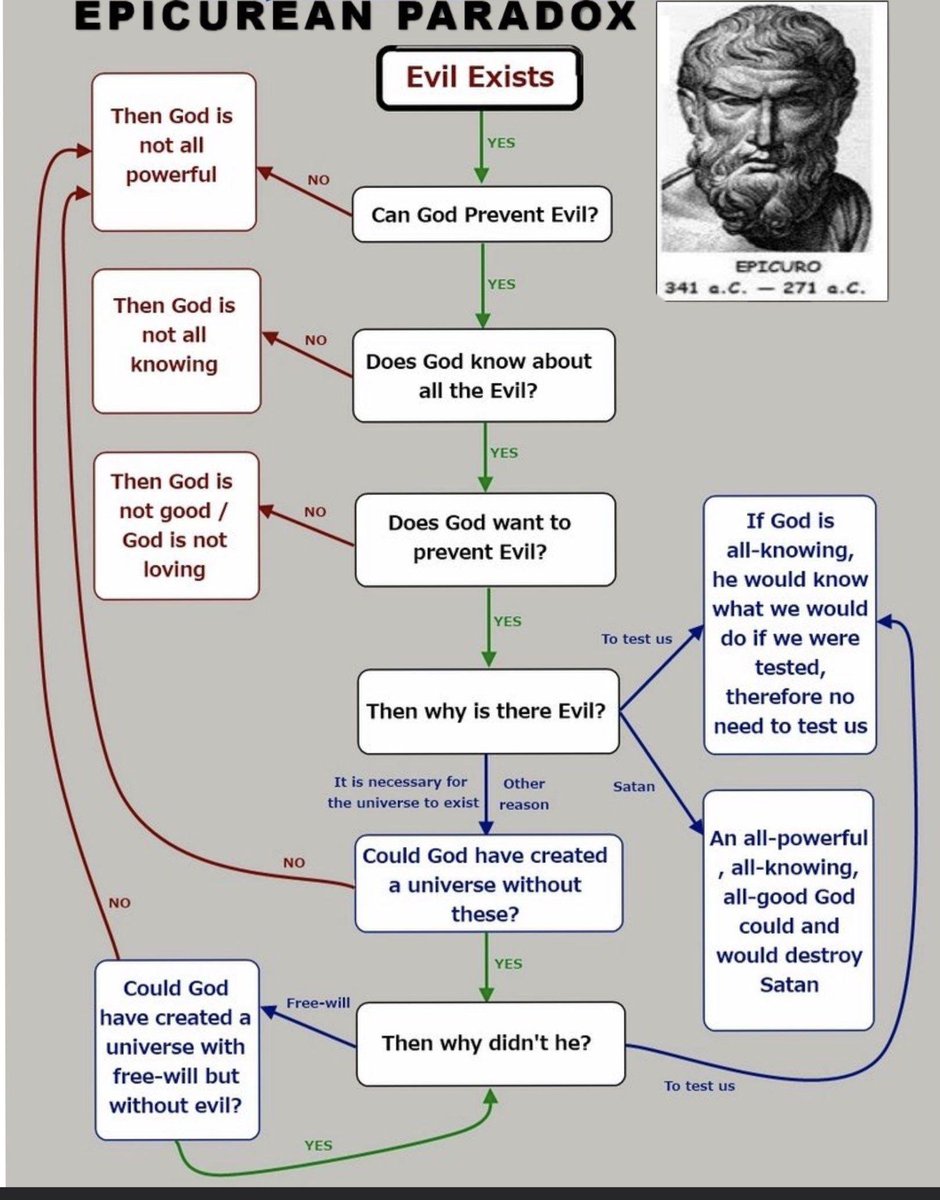nPeace
Veteran Member
One of the Atheists argument is as follows :-
However, the gist is somewhere in there.
Why can God not exist (as a morally perfect entity, who is all powerful, all knowing and all wise), where evil exists, although God knows when evil existed, and although God wants to do something about it?
The argument is not a sound one.
Romans chapter 8 verses 20 and 21 says this... "For the creation was subjected to futility, not by its own will, but through the one who subjected it, on the basis of hope that the creation itself will also be set free from enslavement to corruption and have the glorious freedom of the children of God."
Allowing suffering for a permanently lasting freedom from corruption, seems pretty moral to me.
How can that not be moral?
It would actually be evidence too of one who is all knowing, all wise and all powerful. Isn't it?
- If God exists, then God is omnipotent, omniscient, and morally perfect.
- If God is omnipotent, then God has the power to eliminate all evil.
- If God is omniscient, then God knows when evil exists.
- If God is morally perfect, then God has the desire to eliminate all evil.
- Evil exists.
- If evil exists and God exists, then either God doesn’t have the power to eliminate all evil, or doesn’t know when evil exists, or doesn’t have the desire to eliminate all evil.
- Therefore, God doesn’t exist.
However, the gist is somewhere in there.
Why can God not exist (as a morally perfect entity, who is all powerful, all knowing and all wise), where evil exists, although God knows when evil existed, and although God wants to do something about it?
The argument is not a sound one.
Romans chapter 8 verses 20 and 21 says this... "For the creation was subjected to futility, not by its own will, but through the one who subjected it, on the basis of hope that the creation itself will also be set free from enslavement to corruption and have the glorious freedom of the children of God."
Allowing suffering for a permanently lasting freedom from corruption, seems pretty moral to me.
How can that not be moral?
It would actually be evidence too of one who is all knowing, all wise and all powerful. Isn't it?



